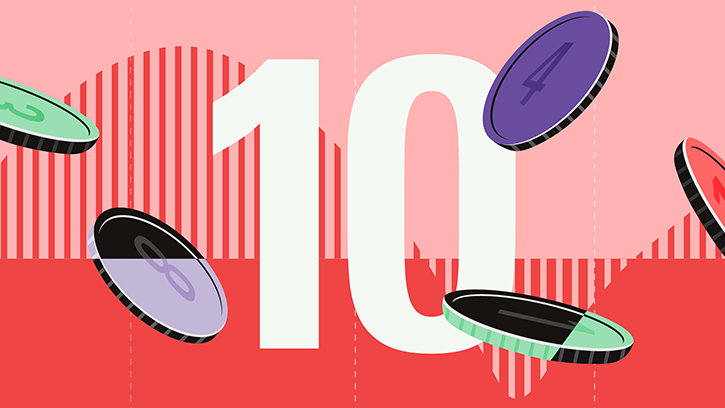
Hedge funds are betting against oil and retail stocks with Diversified Energy Co DEC, Petrofac PFC and Ocado OCDO becoming the most-shorted stocks in the UK.
Marshall Wace’s 1.77% Burberry BRBY short, taken Sept. 24, is the largest single short position over the month. The fashion house has shared the same fate as Ocado; both companies feature highly in our list, Burberry lost its FTSE 100 status, only a few months after Ocado, and both have seen their share price halve since the start of the year.
Burberry has lagged the wider luxury industry’s growth for a decade and departed with three CEOs in that timeframe—and Morningstar’s senior equity analyst Jelena Sokolova has reduced the fair value estimate for Burberry four times this year alone. Currently, 4.30% of the company’s stock is shorted, which is slightly down from 4.76% in July, ahead of the FTSE 100 demotion.
Ocado has a net short of 5.95% and BlackRock’s bet against 1.68% of the stock is the largest for the online grocer.
Diversified Energy climbed to the top spot with a net short of 9.19%, surpassing oil services company Petrofac—which continues its recovery from a 99% stock price drop and share suspension earlier this year. Together, Ocado, Petrofac and Burberry are the three stocks in the list with the worst share price returns this year: all down almost 50%.
Meanwhile, Diversified Energy, which specializes in buying older US gas wells, enjoyed a strong summer and was at one point up over 20%. The company has since fallen to a negative return of 12%. Since inception, the company is down 66%. Arrowstreet Capital is Diversified Energy’s biggest shorter with a 1.73% position taken on Sept. 20, followed by Bridgewater Associates and Voleon Capital with over 1% each.
In this list, we have included all stocks where the total net positions are above 3%. Four of these stocks are rated by Morningstar analysts and three are considered to be trading below their fair value estimates. Most stocks in the list have seen double-digit share price losses over the course of 2024.
Some companies have fared better. The share prices of three of the 14 most-shorted stocks are up in 2024 and the biggest gains belong to Kingfisher KGF. The stock, up 37% after surging on half-year results, shows the impact volatile market moves can have on the stock’s owner—who would benefit from a share price jump – and the short seller, hoping to make a profit from any tumble.
In contrast to Kingfisher and outside the top 14, both Marshall Wace and Qube Research & Technologies took positions against Aston Martin Lagonda AML in early September. Yesterday, on Sept. 30, the stock fell over 20% on revised sales guidance.
Some stocks have managed to find their way out of the list. Online retailer Asos ASC was the seventh most-shorted stock at the end of July but its share price jumped last month on the news that it had sold the majority of its Topshop stake in a move to repay debts. Barratt Developments BDEV and Sainsbury’s SBRY have also made it off the list.
The recent stock moves highlight the impact of a potentially volatile earnings season as some economists believe stock markets to be out of sync with the economic cycle. With an autumn statement from the new Labour government coming at the end of October and a potential rate cut on the cards for the Bank of England in November, hedge funds willing to bet against the market will be carefully eyeing the next opportunities.
What is Short Selling? How Does it Work?
Short selling can be a highly profitable way to exploit the falling share price of companies in distress. It involves selling shares you don't own to make a profit from the fall in the price.
To do this, you borrow them from specialist firms like brokers, sell them at the current market price with the hope of buying them back at a cheaper price later. This active trading strategy is usually only undertaken by professional investors, but often provides an early warning sign of problems ahead that can be picked up on by all.
Firms that have attracted short sellers in the past include Thomas Cook and Carillion in the UK, and scandal-hit Wirecard in Germany. Shorting tends to attract other shorters, however, and some argue it only hastens the demise of a company. Sometimes a company on a shorting list may have terminal problems; other times it’s just a temporary loss of confidence prior to a turnaround, or a buyout, which takes the company off the market or puts it in new hands.
Alongside specialist trading firms and hedge funds, some of the biggest asset managers are involved in shorting, including BlackRock, Jupiter and JP Morgan.




























